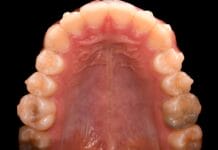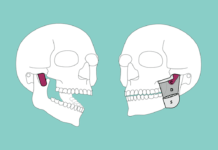Whether you recently graduated from dental hygiene school or you have been practicing for 25 years, you may find yourself in survival mode at work from time to time. Many demands are placed on our precious minutes with our patients. Daily practice of dental hygiene may include any or all of the following: radiographs, head and neck exams, periodontal charting, intraoral photos, use of caries identification technology, bacterial reduction using diode lasers, application of chemotherapeutic agents, scaling for prophylaxis or periodontal therapy procedures, and coordinating the exam with the doctor.
How are we supposed to find time for patient education among this mountain of services? The more important question is why should we make patient education a priority? In this article, we will discuss the double-faceted nature of patient education:
- Informing the patient of his or her current health
- The use of motivational interviewing to help the patient achieve healthier habits and a healthier mouth
As health-care providers, our obligation to our patients is first and foremost to educate them regarding their oral condition. It is easy for this fact to become clouded in the daily grind of dental hygiene practice. When we become overwhelmed, it is too easy to revert to the idea that the patient is in the chair “for a cleaning.” Corners start to get cut. Periodontal charting may not be maintained at appropriate intervals. We make idle chitchat instead of having meaningful health-related conversations with our patients. Head down. Scale. Polish. Floss.
No Markers? Not a Priority
One major problem of not prioritizing education is that we are not as actively looking for the markers of disease. If we plan to talk with our patients regarding their periodontal status, we will have to complete a periodontal examination and chart in order to speak about it in an informed manner.
If we want to talk to them about their oral cancer screening, we will need to do a head and neck exam, and potentially use a handheld tissue fluorescence device. In order to talk about how to reduce caries risk, we must interview the patient regarding diet, systemic health, and habits.
If we have no intention of educating our patients, it is likely that a truly comprehensive oral health examination has not been completed. Conversely, if you have no intention of informing your patients of their oral conditions, what is the purpose of an encyclopedic evaluation?
If patients are not informed at their visits that they have worsening periodontal probing depths and new areas of gingival hemorrhage, they will be nearly certain to walk out of the office thinking that they are in good gingival health. This idea can be applied to any facet of evaluation that we do.
The lack of information is actually misinformation. When a patient visits a health-care provider, they expect to be informed of any disease process present. If you went to your primary care physician and were not told that there was an issue, would you assume anything other than a clean bill of health?
Motivational Education
There is often a gap to be bridged between informing your patients of their current conditions and achieving behavior changes to improve oral health. There are times when patients are not ready to learn about what we have to say.
Certainly, you have had a patient who sits down and immediately confesses, “I have to tell you, I have not been flossing.” This patient’s ears heard what you had to say at the last visit, but they were not ready to implement a change. Even in these cases, it is imperative to have a conversation with your patients. “Mr. Smith, I understand flossing has presented challenges for you. Would you like to look at other ways we can improve the health of your gums?” Once your patients start to view you as an ally in their oral health journey instead of an antagonistic opponent, they are much more likely to consider implementing changes.
Motivational interviewing can be helpful in changing patient education from talking at your patient to working together to achieve behavioral changes. “Motivational interviewing is a directive, client-centered counseling style for eliciting behavior change by helping clients to explore and resolve ambivalence.”1 There are four main processes of motivational interviewing:
- Engage (establish rapport, safety, and empathy)
- Focus (identify and explore goal behaviors, as well as barriers to these behaviors)
- Evoke (help develop patient’s internal motivation, elicit language from the patient indicating they believe in the importance of change and their ability to enact behavior modification)
- Plan (action plan, remove barriers, develop skills)2
When I was taught about oral hygiene instruction (OHI) in dental hygiene school, I was taught the “tell, show, do” method, which means tell the patient what to do, show them how to do it, and then have them do it themselves. This may be an effective means of teaching a skill, but realistically, it should be the final step in the motivational interviewing process. Without patient motivation, no amount of OHI will inspire a behavior change. Note in the above paragraph that “develop skills” is listed last in the entire process.
As crazy as your day becomes, I encourage you to put your patients first. Excellent patient care is far more than just scaling to completion or removing every last bit of stain. For patients to achieve optimal oral health, they need you to guide them, to educate them, and to help them find their own internal motivation.
We are health-care providers, we are educators, and we are motivators. Skipping education is a disservice to your patients who rely on you for care, and to yourself. As a dental hygienist, you have been equipped with the skills and education to do so much more than just clean teeth.
Before you leave, check out the Today’s RDH self-study CE courses. All courses are peer-reviewed and non-sponsored to focus solely on pure education. Click here now.
Listen to the Today’s RDH Dental Hygiene Podcast Below:
References
- Rollnick, S., Miller, W. What is Motivational Interviewing? Behavioral and Cognitive Psychotherapy. 23, 325-334. Retrieved from https://sharepoint.washington.edu/uwpsychiatry/SPIRIT/resources/Documents/Care%20Manager%20Resources/What%20is%20Motivational%20Interviewing-Handout.pdf
- The 4 Processes of MI. State of Colorado. Retrieved from https://cdpsdocs.state.co.us/epic/epicwebsite/resources/mi_communities_of_practice/4_processes/4_processes.pdf











